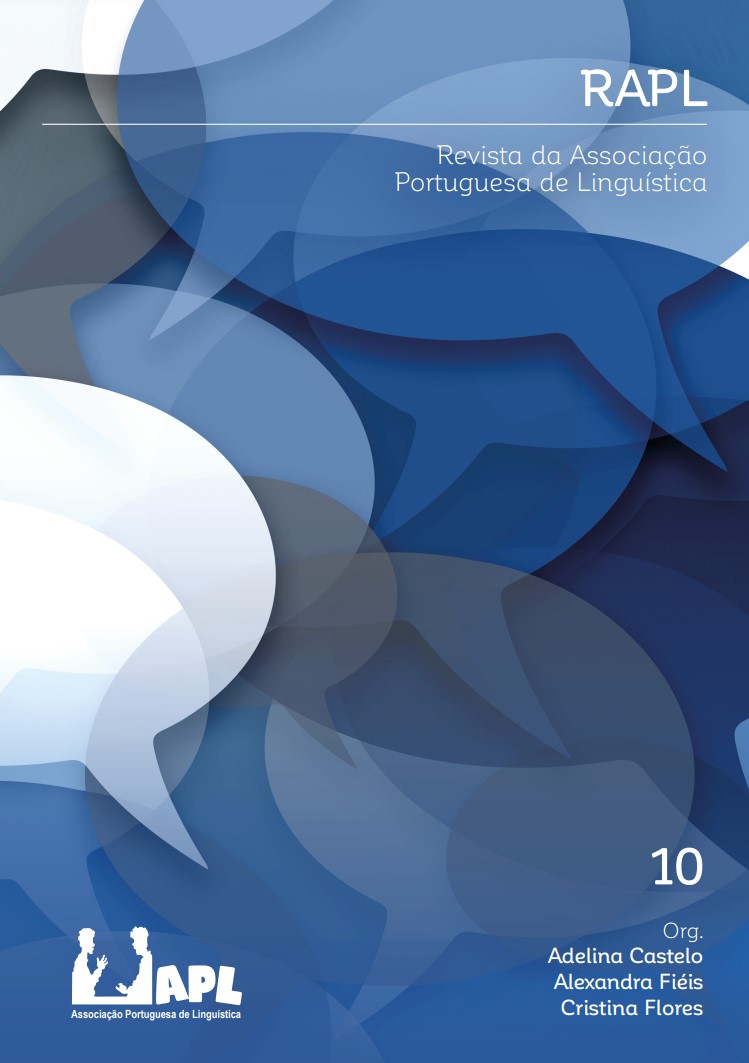Discourse markers with modal functions
A contrastive analysis of "claro" and its functional equivalents in French
DOI:
https://doi.org/10.26334/2183-9077/rapln10ano2023a12Keywords:
discourse markers, polyfunctionality, modality, contrastive analysis, corporaAbstract
The modal functions performed by some discourse markers have been the subject of analysis for several languages. This paper analyzes the different values conveyed by the Portuguese discourse marker claro, and takes a contrastive perspective with French, based on monolingual and parallel, written and spoken, corpora, in order to identify discourse markers that are functional equivalents of claro in different contexts. Contexts of claro and its French equivalents in corpora show a meaning of agreement and shared knowledge, as well as the elimination of alterity (bien sûr), factuality (de fait, c'est un fait), opposition and even irony (bien entendu) and the insertion in argumentative structures preceding contrastive or concessive segments (certes). Even in contexts in which claro does not responds to or comments on the discourse of a direct interlocutor, it establishes a relationship between the speaker's discourse and another discourse, either the discourse of an epistemic community that includes the speaker or the implicit discourse of a real or virtual speaker.
Downloads
Downloads
Published
How to Cite
Issue
Section
License
Copyright (c) 2023 Amália Mendes, Pierre Lejeune

This work is licensed under a Creative Commons Attribution-NonCommercial-ShareAlike 4.0 International License.
Authors retain copyright and concede to the journal the right of first publication. The articles are simultaneously licensed under the Creative Commons Attribution License, which allows sharing of the work with an acknowledgement of authorship and initial publication in this journal.
The authors have permission to make the version of the text published in RAPL available in institutional repositories or other platforms for the distribution of academic papers (e.g., ResearchGate).




